There’s a certain mystique about a Comrades Marathon medal. The Comrades Maraton medals are certainly not the flashiest medals about, and being only 29mm or just over 1 inch in diameter they’re one of the smallest medals too.
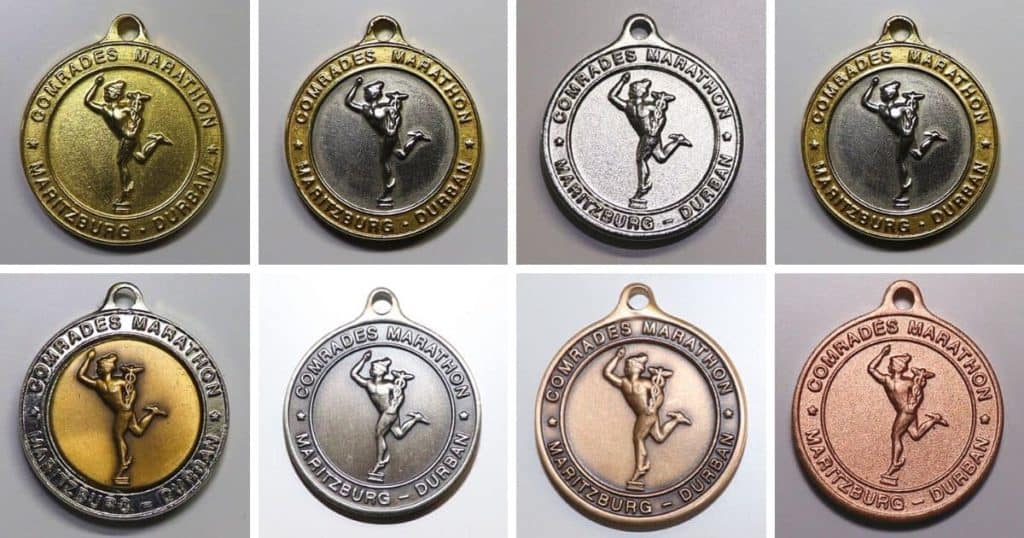
But what makes a Comrades Marathon medal so special I hear you ask?
Legend has it that when the 1968 Boston Marathon winner Amby Burfoot got married, his wife said to him that she wasn’t going to allow him to turn their house into a shrine dedicated to his running career.
Amby’s wife has let him keep two medals on prominent display in their house.
One is his Boston Marathon winners medal…
…The other is his Comrades Marathon Bronze medal.
In this post, I’m going to tell you a little about each of the 9 Comrades Marathon medals and what it takes to get them. These are the Comrades Marathon medals we’ll be looking at: (Click on any of the links to go directly to that section)
- The Vic Clapham Medal or Comrades Finishers/Sub 12 Hour Medal
- The Comrades Bronze Medal or Sub 11 Hour Medal
- The Robert Mtshali Medal or Sub 10 Hour Medal
- The Bill Rowan Medal or Sub 9 Hour Medal
- The Comrades Silver Medal or Sub 7:30 Hour Medal
- The Isavel Roche Kelly Medal
- The Wally Hayward Medal
- The Comrades Gold Medal
- The Comrades Back to Back Medal
Before we look at each of the Comrades Marathon medals, let’s do this…
How fast do you have to run to claim the different Comrades Marathon medals?
Every year in June, around Comrades race day the calculators come out in order to work out what speed or pace you need to run at in order to complete the Comrades Marathon successfully.
In order to finish the Comrades Marathon in under 12 hours, you will need to average just under 8:00 minutes per kilometre or 12:48 minutes per mile on the Comrades down run (90km or 56 miles). For the Comrades up run (87km or 54 miles) that jumps to 8:12 minutes per kilometre or 13:21 minutes per mile.
Those paces get faster as you get to the pointy end of the Comrades field. Edward Mothibi averaged 3:48 minutes per kilometre or 6:08 minutes per mile to win the men’s race in 2019, while Gerda Steyn averaged 4:07 per kilometre or 6:39 minutes per mile to win the lady’s race.
If you’re wondering how much training you actually need to do to run the Comrades Marathon then our Comrades Marathon Training Mileage Guide will have all the answers you are looking for (Including the number of marathons and ultras you need to run in training)
Let’s dig into what that actually means and let’s start with the Comrades Marathon medal that the vast majority of the Comrades field get on race day…
The Vic Clapham Medal
After the first World War, Vic Clapham wanted to do something to honour and remember his fallen comrades. So in 1921, he decided a foot race between the city of Pietermaritzburg and Durban would be a fitting tribute. And so the Comrades Marathon was born.
The Vic Clapham or Comrades Finishers Medal, which is made of copper, was introduced for the first time and was awarded to runners finishing between 11:00 and sub 12:00 hours.
From an ability perspective, I personally believe that any abled person, who sets the goal and does the work required can finish Comrades under the 12 hour cut-off.
We’ve created an extensive guide to claiming your Comrades Marathon Vic Clapham medal that includes training plans, tips and a run-walk strategy that you can employ on race day. You can read that guide here.
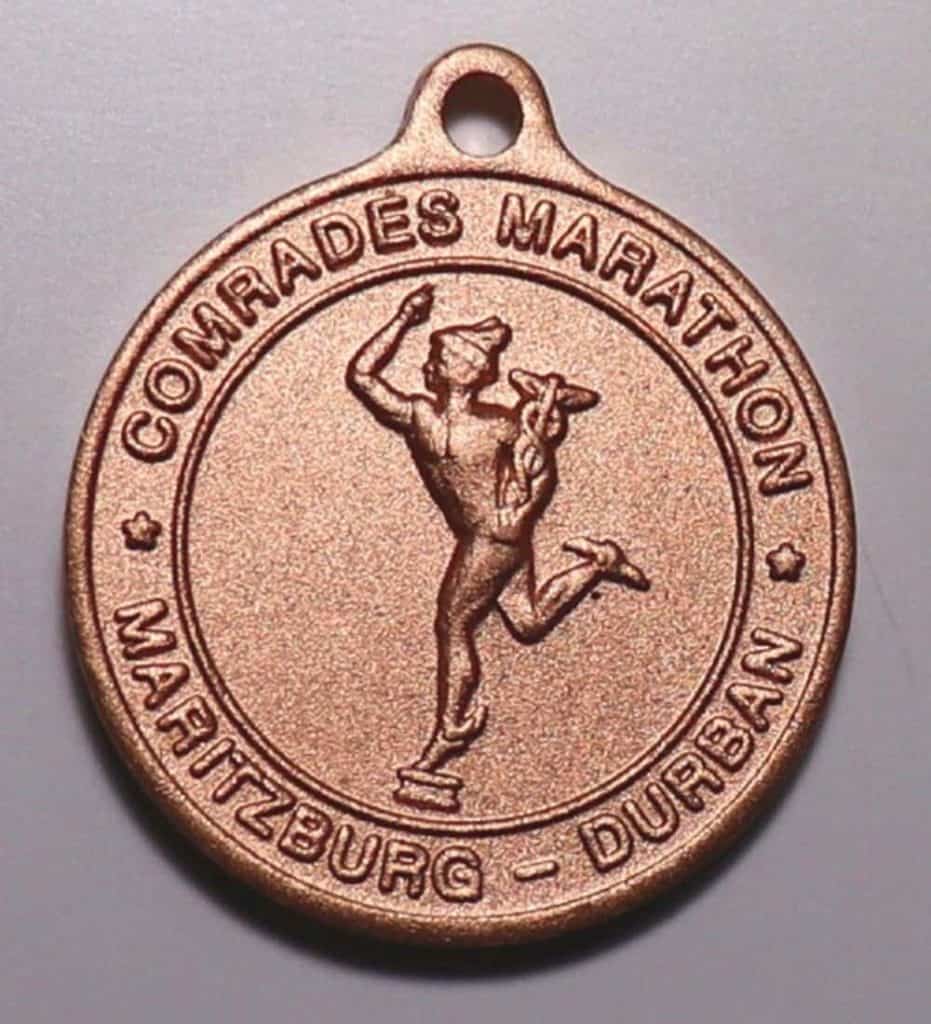
What pace do you need to run at to run Comrades in under 12 hours?
This is a question we get asked very often and as mentioned above, the answer is quite surprising:
In order to make the 12 hour cutoff and claim your Comrades Vic Clapham medal, you will need to average just under 8:00 minutes per kilometre or 12:48 minutes per mile on the Comrades down run (90km or 56 miles). For the Comrades up run (87km or 54 miles) that jumps to 8:12 minutes per kilometre or 13:21 minutes per mile.
A lot of people are surprised when they read those numbers thinking that they need to run a lot faster in order to finish Comrades.
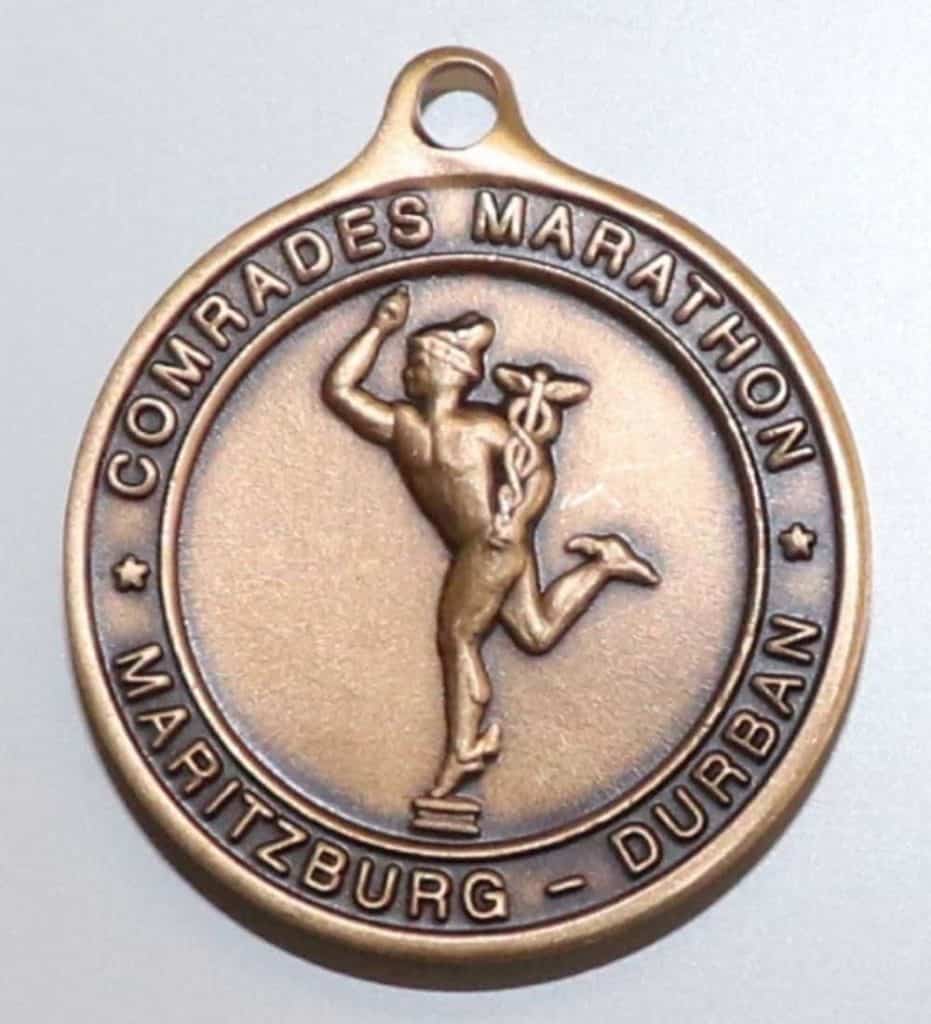
The Bronze Comrades Marathon Medal
The Comrades Bronze medal was first introduced in 1972 for runners that finished between 7:30 and sub 11 hours. (This was changed in the year 2000 when the Bill Rowan was introduced and again in 2019 when the Robert Mtshali medal was introduced)
As it stands right now, those runners that finish between 10 hours and under 11 hours will receive a Comrades Bronze medal.
In order to dip under 11 hours at Comrades, you will need to average 7:17 minutes per kilometre (11:47 minutes per mile) on the Down run and 7:30 minutes per km (12:12 miles per min) on the Up run.
The Robert Mtshali Medal
In 1935, Robert Mtshali became the first unofficial black runner to finish the Comrades Marathon when he crossed the line in a time of 9 hours and 30 minutes.
It was only 40 years later, in 1975, that the race was opened to all athletes for the first time which allowed black runners and women to officially take part in Comrades.
The Robert Mtshali medal, which is made of titanium, was introduced for the first time at Comrades in 2019 and is awarded to runners who finish Comrades between 9 hours and under 9:59:59 or Sub 10.
Your average pace on race day, if you’re chasing a Robert Mtshali medal, will need to be below 6:36 minutes per km or 10:42 minutes per mile.
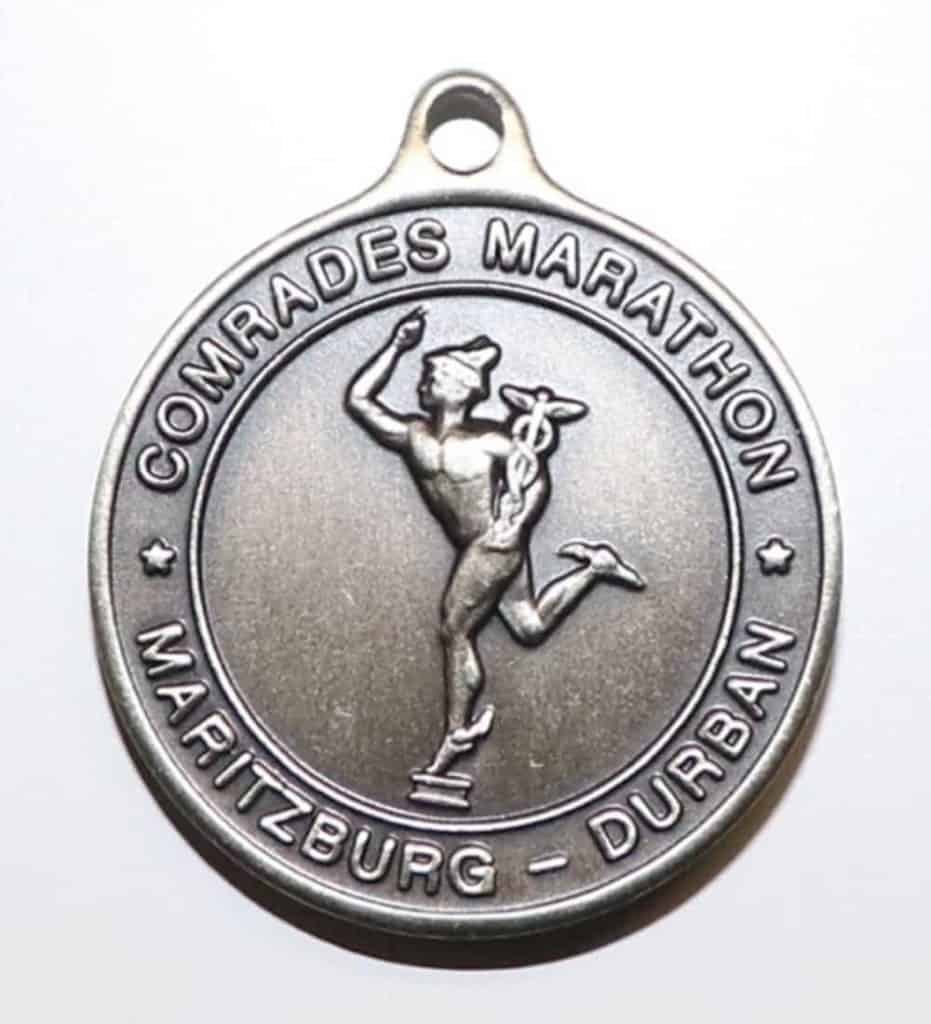
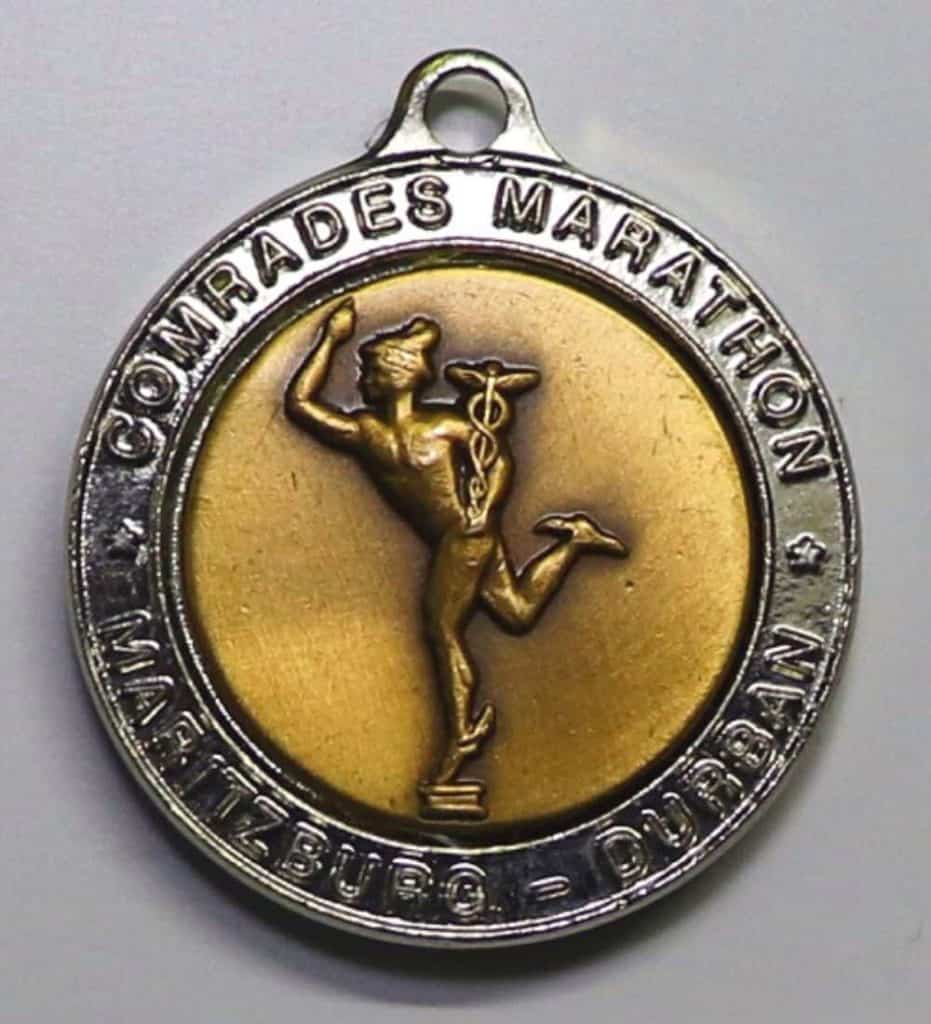
The Bill Rowan Medal
Bill Rowan was the first person to win the Comrades Marathon back in 1921. He finished in a time of 8 hours and 59 minutes. It was in the year 2000 that the Bill Rowan medal was introduced for the first time.
This bronze-centred medal which has an outer silver ring is awarded to anyone finishing Comrades between 7:30 and 8:59:59.
On race day your running pace needs to average a fraction under 6:00 per km or 9:38 per mile for the down run and 6:12 per km or 10:00 per mile for the up run.
The Silver Comrades Marathon Medal
The Silver medal at Comrades is the medal that has been around the longest. It was the first medal that was awarded to all finishers who finished under 12 hours in 1921. It remained as the only Comrades medal until the introduction of the gold medal 10 years later in 1931.
In order to run a silver medal at Comrades you need to have a great deal of running ability.
The minimum pace required to claim a Comrades Silver medal is 5:00 per km or 8:00 per mile for the down run and 5:10 per km or 8:20 per mile for the up run.
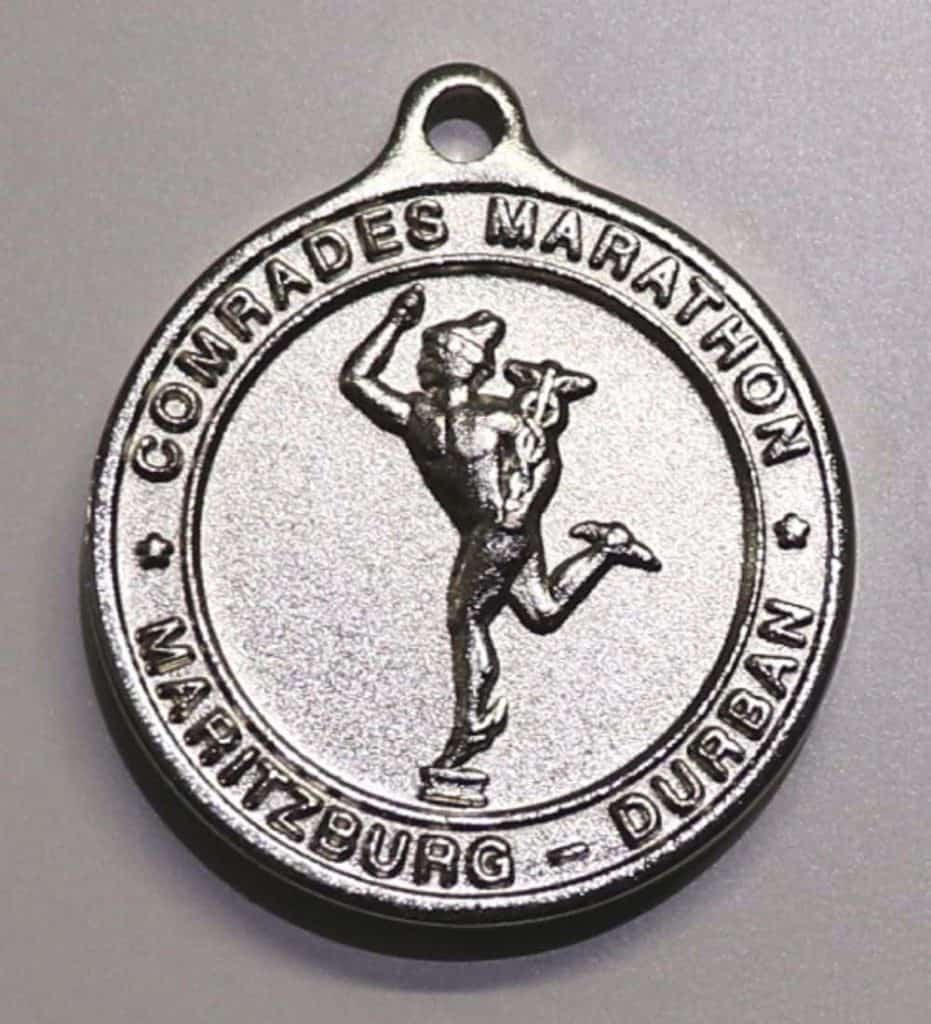
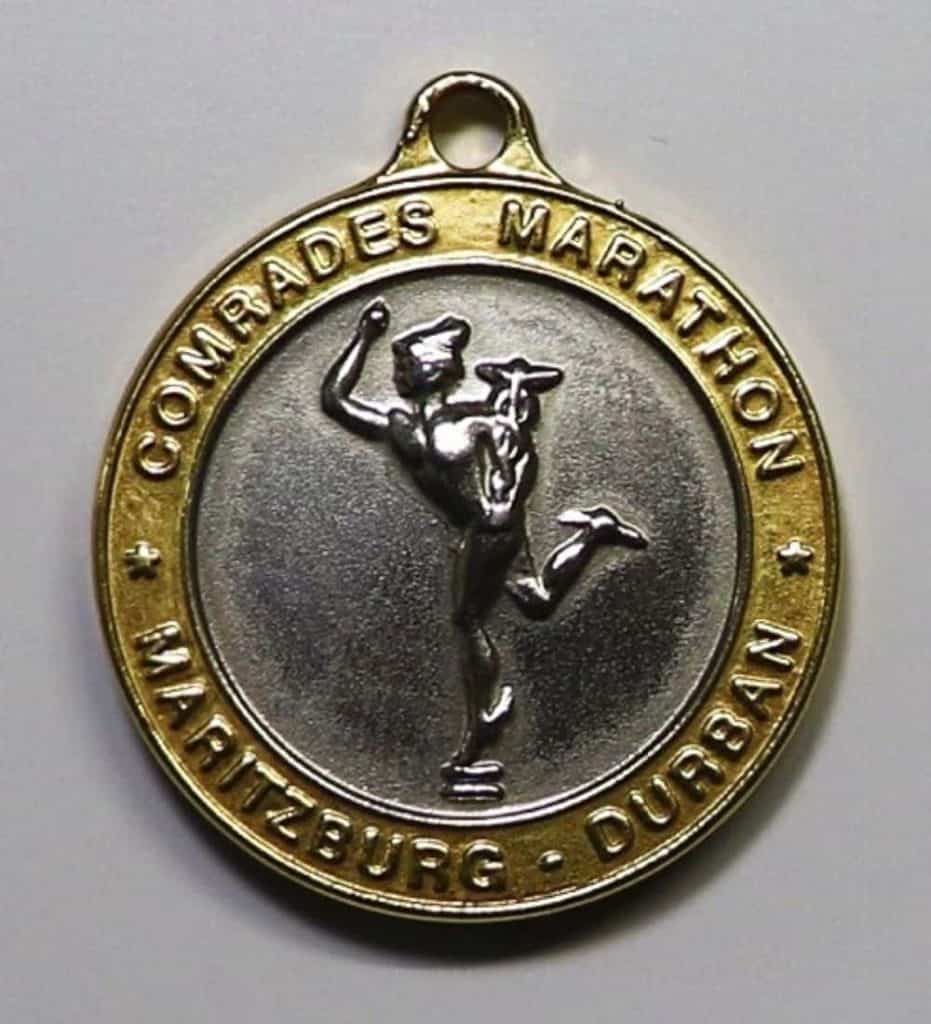
The Isavel Roche-Kelly medal
Along with the Robert Mtshali medal, 2019 also saw the introduction of the Isavel Roche-Kelly medal. In 1980 Isavel Roche-Kelly became the first woman to break the 7:30 mark when she ran a 7:18 Comrades to claim her first, of two, Comrades wins.
As of 2024, the Isavel Roche-Kelly medal has had a revised cut-off time.
This silver-centred medal which has a gold outer ring is awarded to women only who finish outside of the top 10 but under the 7 hour mark.
Women now stand the chance of earning the coveted Comrades Silver medal.
The training before and race day paces are the same as for the Silver medal above but when we start looking at running ability things change slightly.
One thing we’ve found when analysing the Comrades data is that women tend to get better and their performances fade less as they go longer compared to males.
The Wally Hayward Medal
Wally Hayward is a Comrades legend. He not only broke the Comrades record 3 times in 5 of his Comrades wins, but he also holds the record of being the oldest finisher ever. At the age of 80, in 1989, Wally captured the hearts of everyone watching that year when he crossed the line in 10:58:03.
Just like the Isavel Roche-Kelly medal, the Wally Hayward medal is also half silver and half gold.
It is awarded to those runners who do not finish within the top 10 but who dip under 6 hours.
In order to dip under 6 hours at Comrades you need to average under 4 minutes per km or 6:25 per mile for the down run and 4:06 per/km or 6:39 min/mile for the up run.
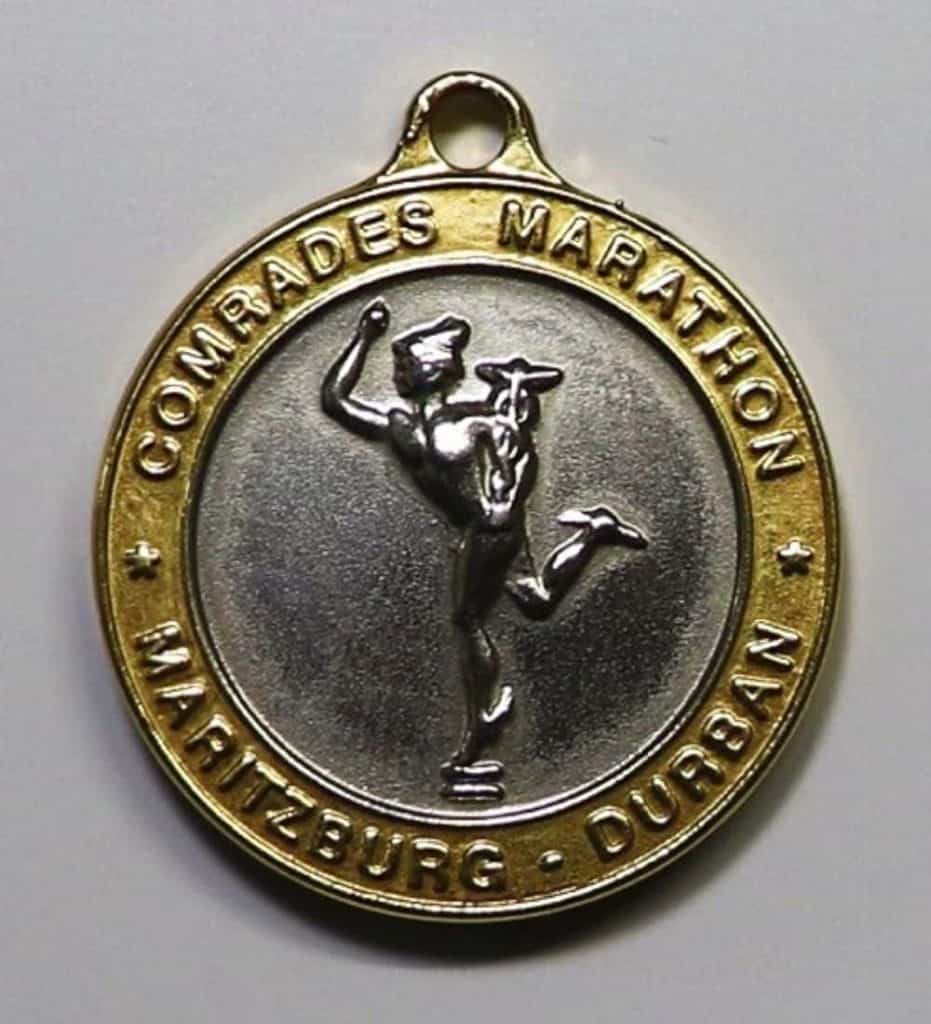
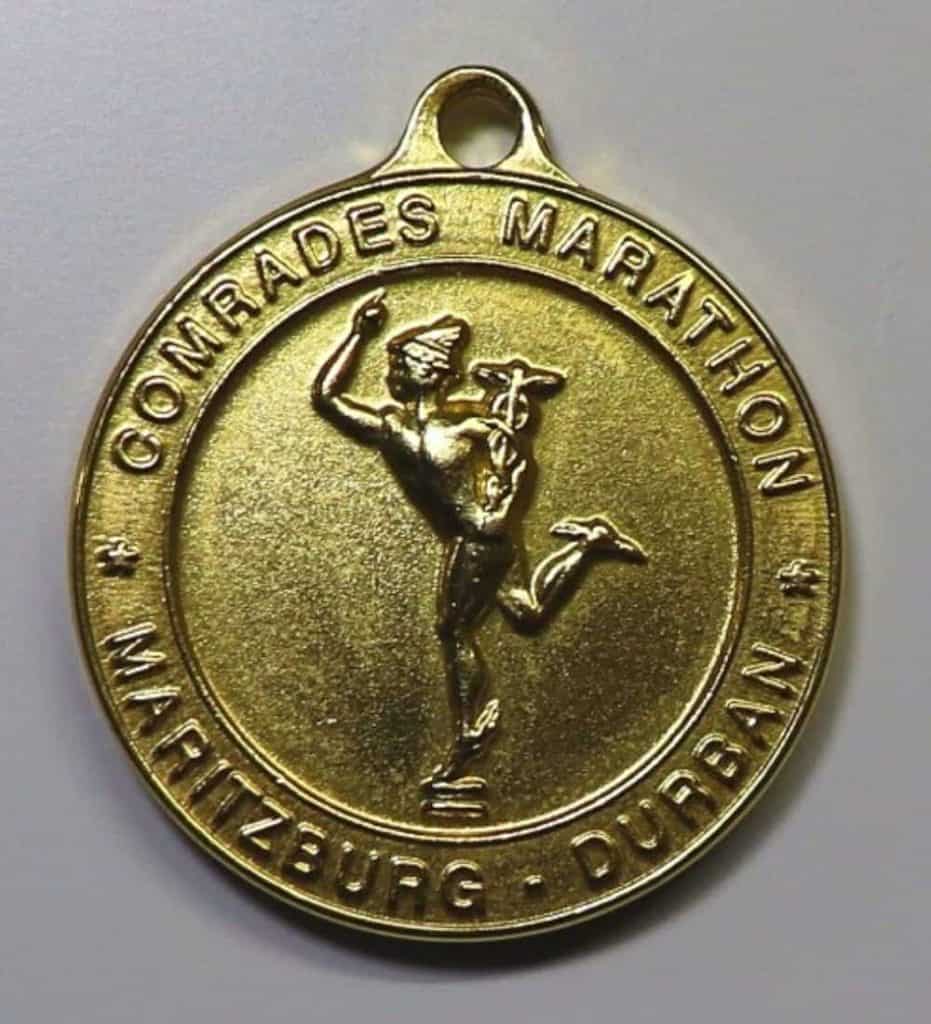
The Gold Comrades Marathon Medal
The illustrious Comrades Gold medal was first introduced in 1931 and was awarded to the first 6 athletes to cross the line. That was extended to the first 10 athletes in 1972.
It was only in 1983 that a gold medal was awarded to the first woman to cross the line. That was increased to 3 in 1988 and then in 1995 the top 5 women received gold. In 1998 the top 10 women received gold medals for the very first time.
It is difficult to predict what pace you need to run on race day to finish in the top 10, but let’s look at the last up run in 2019 as a guide.
In the men’s race, Siya Mqambeli ran a 05:52:51 to claim the last gold medal. That is an average pace of 4:02 minutes per km or 6:30 minutes per mile.
In the women’s race, Mary Khourie ran a 6:55:27 to finish 10th. That equates to an average pace of 4:46 minutes per kilometre or 7:42 minutes per mile
The Comrades Back To Back Medal
The Back to Back Comrades medal was first introduced in 2005. In order to qualify for a Back to Back medal you need to meet the following criteria:
- You need to be a Comrades Novice and
- You need to complete two consecutive Comrades Marathons
The Back to Back medal is awarded after your second run after having gone back to back in consecutive years. In normal circumstances, a Back to Back medal would comprise of an up and a down Comrades but there have been circumstances where the Back to Back will be a Double Down (for example 2020 and 2021).
Despite allowing them to be awarded retrospectively (for a small fee) for a number of years, a decision to change that was made by the Comrades Marathon Association’s Heritage Committee in 2020. The Comrades Marathon Back to Back Medal will now fall back in line with all the other medals and no longer be awarded retrospectively.
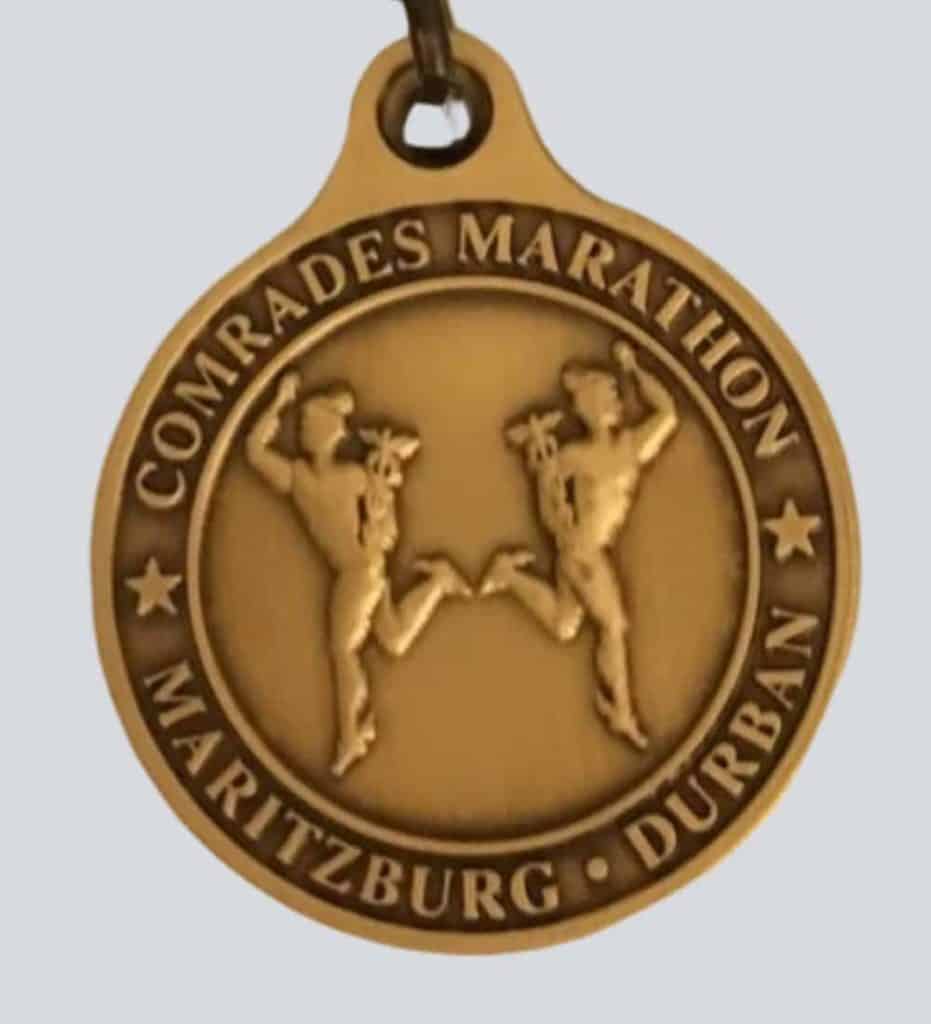
If you’d like to know more about the Comrades Marathon and what it takes to run it, then make sure you have a look at our Ultimate Comrades Marathon Resource Guide. It literally has EVERYTHING you will need to know about training for and running the Comrades Marathon. You can read that guide here.



Comments are closed.